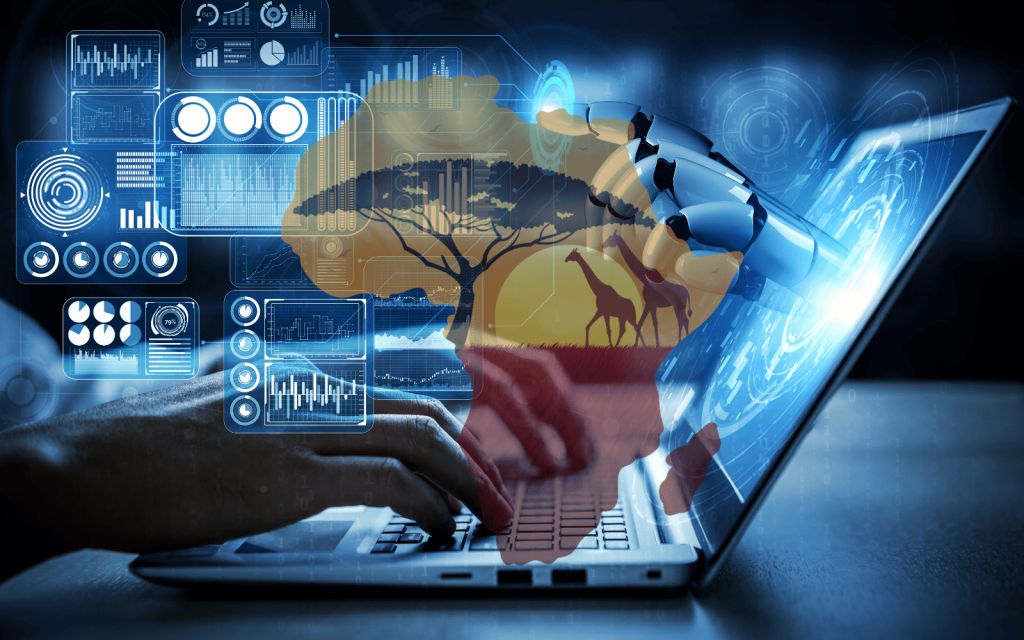Imagine standing at the threshold of the next industrial revolution. Well, you are. As companies across the world engage with artificial intelligence (AI), Africa is not just ready to join the conversation – it is poised to lead it.
As global developments in AI, like OpenAI’s DALL-E 2 and conversational agents like ChatGPT, continue to shape the future, our continent stands ready not just to adapt but to lead.
And do not think the concept is high-minded or unattainable. It has immediate potential in the device sitting on your desk or in the palm of your hand.
Gadgets, once considered mere tools, have evolved into intelligent companions, thanks to the infusion of AI. Whether it is smartphones adapting to user habits, smart speakers processing voice commands, or fitness trackers analysing health metrics in real-time, AI is at the heart of these advancements, making gadgets more intuitive and user-centric.
The future beckons
The integration of AI into gadgets has unlocked a realm of possibilities. Modern smartphones, equipped with AI, can recognise scenes, adjust settings in real-time, and even enhance images post-capture, all autonomously. Similarly, in the world of wearables, AI-driven algorithms analyse sleep patterns, heart rate variability, and stress levels, providing insights that were once the domain of specialised medical equipment.
But before I get too carried away, and as gadgets become smarter, concerns about privacy, data security, and over-reliance on technology come to the fore. The onus now lies on tech developers and policymakers alike to ensure the dance, remains in harmony with the best interests of humanity.
But it is those interests that can be best served in Africa. A new McKinsey Global survey says global AI adoption is surging, doubling from its commencement in 2017 and the continent is not just a follower in this narrative.
With its exponentially growing youth demographic, burgeoning middle class, and escalating mobile and internet penetration, there is convincing evidence that the continent could soon be a torchbearer in AI innovation and application.
For instance, AI’s imprint on healthcare in Africa is transformative. Companies like Eden Care from Rwanda, which is streamlining health insurance processes, and Zuri Health in Kenya, which extends healthcare access to remote regions, show how Africa is harnessing AI for the greater good.
And AI’s potential does not merely orbit around healthcare. Pioneering startups across the continent are leveraging AI to tailor-make solutions for unique African challenges.
Forecasts suggest that AI expenditure on the continent will jump from $3bn in 2023 to $6.4bn by 2026.
What to do about AI
So, look, there it is. The bandwagon is ready and waiting for you to climb on. But what do you need?
Companies need to partner with local talent, understand grassroots challenges, and develop solutions in collaboration with communities. Building robust data infrastructure will be paramount.
Then recognise that one-size-fits-all solutions will not suffice. Develop AI models that cater to Africa’s unique socio-economic and cultural landscape.
To my earlier point about ethics, develop AI responsibly and ensure that it does not perpetuate biases or inequalities. Address ethical concerns head-on and ensure transparency in AI processes.
So, to corporations, governments, startups, and individuals—this is the pivotal moment. Engage with AI, funnel investments, stimulate innovation, and in unity, craft an AI-led era where Africa does not just adapt but paves the way.
This guest column was written by Kerushan Govender, founder and CEO of Blacfox. Blacfox is a marketing strategy consultancy focussed primarily on the tech sector serving some of the world’s largest brands like Microsoft, SAP, VMware, and LexisNexis. Kerushan Govender on LinkedIn.




